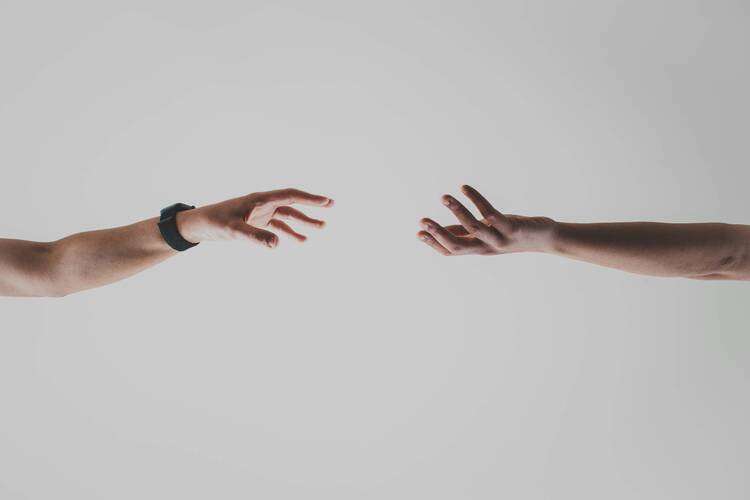A Reflection for the Feast of St. Anthony of Padua, Priest and Doctor of the Church
Find today’s readings here.
“You have heard that it was said to your ancestors,
You shall not kill; and whoever kills will be liable to judgment.
But I say to you, whoever is angry with his brother
will be liable to judgment.” (Mt 5:21-22)
When I got in trouble as a kid, I used to stamp my feet and shout with pure indignance at my mother:
“Don’t you know how much worse of a kid you could have?!”
I was a true goody two shoes, a rule-follower in the extreme. At school, there were “bad kids” who habitually got in trouble, but I took great pains to sit up straight, fold my hands, plant my feet, keep my eyes forward and my mouth closed. I tried hard to do well and to please my teachers. And it worked! I began to see myself as a “good kid,” and getting into trouble was not in my vocabulary.
But my mother’s standards for me were high. If she believed I could do better, she didn’t hesitate to say so. If I lost my temper with her, I had to answer for that. If I grumbled or complained, I was asked to apologize and reframe.
I was indignant in the face of trouble because I had begun to see myself as good—or, perhaps more accurately, as better than other kids my age.
Maybe I wasn’t always doing everything perfectly, but didn’t my mom see that she could have a much worse child on her hands?
Moral judgment does not come on a comparative scale. I don’t get a gold star because I judge myself to be, well, at least not as bad as that person over there. If I keep around, even if only mentally, an example of some great criminal or wrongdoer I use to puff up my moral self-image, I’m missing the point.
Jesus’ words to the disciples in this Gospel passage from Matthew challenge us to an even deeper moral life—one where we are more accountable to him, to God, than we are to our perceptions of others. It’s not enough to say, Well, I don’t kill, and I don’t steal. Some people do. That makes them bad, and because I don’t, that makes me good.
After all, if we’re more focused on climbing over others or on standing on their shoulders to make ourselves look better, we’re missing an important piece of how Jesus describes the moral life in today’s Gospel: the reconciliation of our differences with our brothers and sisters.
Seeing our neighbors as if in some separate and inferior moral class makes reconciliation impossible. After all, as Jesus says to the disciples today, it’s not just those sins like killing and stealing that might cause us to face God’s judgment. He calls us to something more: “Whoever is angry with his brother will be liable to judgment.”
Maybe it’s helpful to get some distance from those labels: “good” and “bad.” When we size up ourselves and our neighbors, how much do those judgments help anyway? Let the judgment be God’s job; let the reconciliation be ours.








